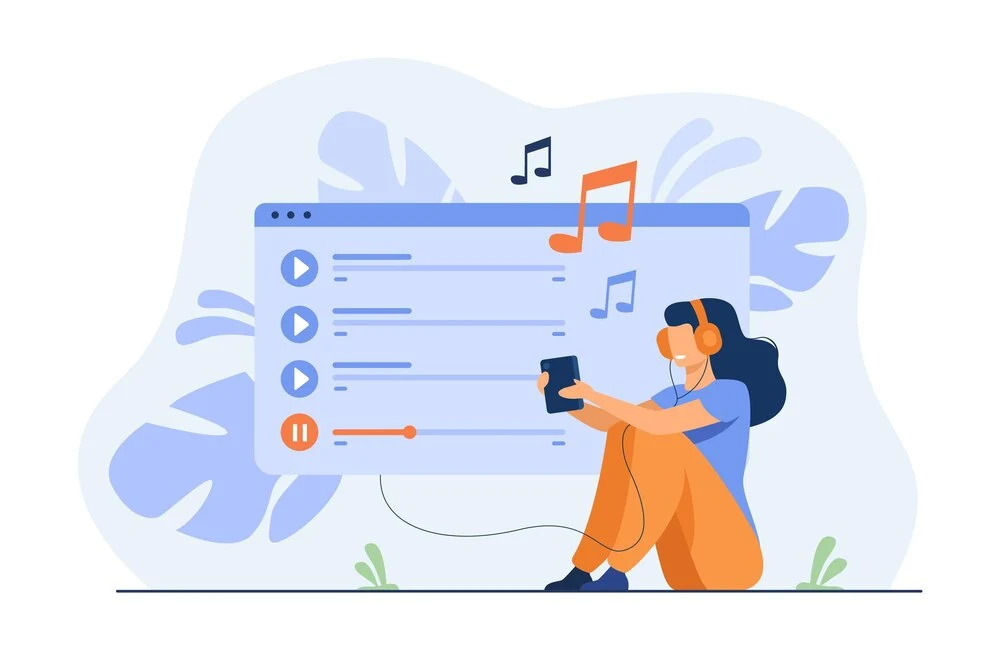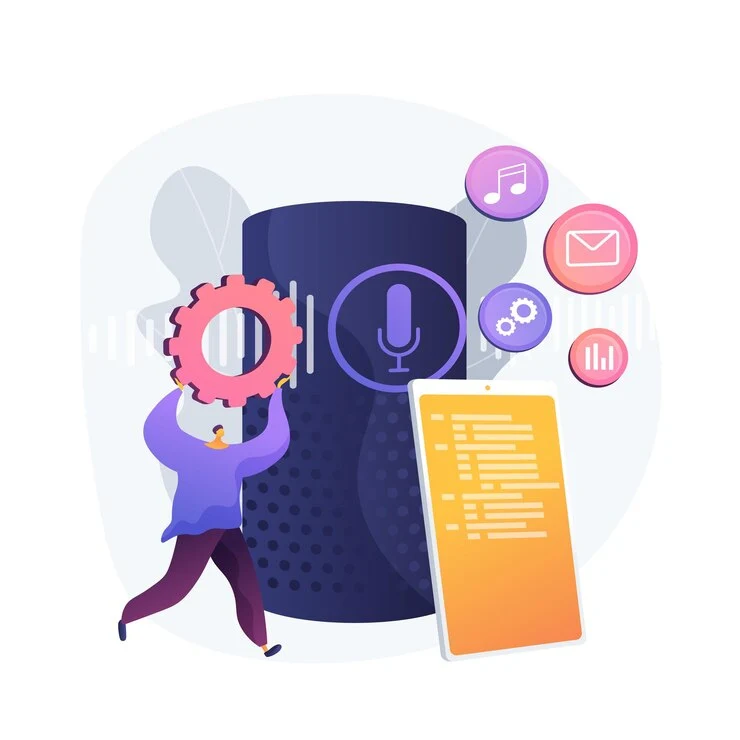The rise of music streaming platforms like Spotify has transformed the way we consume music, but it has also brought about the issue of Spotify copyright infringement.
With allegations of copyright infringement from various artists and music labels, the challenges and legal complications of the digital music landscape have come to light.
Spotify, despite having licensing agreements with major record labels and publishers, has faced claims that it is not compensating independent artists fairly or respecting their intellectual property rights.
This issue has led to lawsuits and public debates over the role and responsibilities of music streaming services in protecting artists’ rights.
In this article, we will explore the issue of Spotify copyright infringement and its impact on the music industry.
Spotify is a Swedish-based music streaming service that was launched in 2008. This business model offers both a free and premium subscription mode.
It quickly became one of the most popular streaming platforms globally, with millions of users and a vast library of music.
Despite its success, Spotify has faced numerous online copyright infringement issues over the years.
Copyright infringement occurs when someone uses copyrighted material without permission from the copyright owner.
This can include unauthorised copying, distribution, or public performance of a copyrighted work.
Spotify obtains licenses from various music industry entities to facilitate authorised music streaming on its platform.
These licenses allow Spotify to pay royalties to the respective artists for each stream of their music.
To determine the royalty payment per stream, Spotify employs a complex algorithm that takes into account a range of factors, such as the country in which the song is being played, the currency value of that country, artist popularity, contractual agreements, and many more.
By using such features, the platform can accurately calculate the amount of royalty that each artist or music label is owed for their music being streamed on the platform.

A few years ago, Spotify attempted to partner with a blockchain startup to accurately identify rights holders. This was an effort to address issues related to copyright infringement and proper compensation for rights holders.
More recently, the Music Modernization Act was passed into law, and one of its provisions was the creation of the Mechanical Licensing Collective.
This is a centralised database of rights holders that is maintained by publishers and is exclusively used to handle statutory mechanical licenses.
The Collective will collect mechanical royalties from streaming services. It will then distribute them to copyright holders according to the ownership claims listed in the database.
Songwriters need to claim their ownership of the songs in the database to receive the appropriate royalty payments. This new system is intended to streamline the process and ensure that songwriters are properly compensated for their work.
Spotify’s copyright policies require the following information to be provided by the owner or an approved representative of the copyright when submitting a claim of infringement:
It is important to provide clear and specific information when submitting a claim of infringement to ensure that the claims are legitimate and accurate.
Respecting and upholding copyright laws is essential for protecting the creative works of others.
Suggested Reading: Basic copyright law
If someone is using your music without permission, there are steps you can take to address the situation.
Firstly, it is important to recognise that any copyright infringement, including the unauthorised use of someone’s work, is considered a crime.
The offender can be punished with imprisonment of up to three years and a fine of up to two lakh rupees.
Spotify offers a mechanism to report copyright violations and assert ownership of original content.
The process involves filling out a form with details such as the name and credentials of the copyrighted work, a description of the location of the infringing material on the Spotify service, and the information of the complaining party.
Although registration of the work is not mandatory, it can play a vital role in a court of law if a dispute arises regarding the owner of the copyright.
Registration can act as prima facie evidence and can be in favor of the real owner. Therefore, it is advisable to register your work, as it can strengthen your case if legal action is necessary.
Relatable article: Check out the linked article to learn more about the remedies for copyright infringement.

If you suspect that content on Spotify infringes on someone’s copyright, it’s essential to report it to the platform.
It takes copyright infringement seriously and will take appropriate action to remove the content if necessary.
Here’s a step-by-step guide on how to report copyright infringement on Spotify:
Before reporting copyright infringement, ensure that the content in question is indeed infringing on someone’s copyright.
Keep in mind that Spotify hosts a vast library of music, and in some cases, songs with similar titles or by similar artists might not necessarily be infringing content.
To report copyright infringement, you’ll need to provide specific information about the content, such as:
Once you’ve gathered the necessary information, you can submit a copyright infringement claim to this platform.
Spotify will investigate your claim and may take down the infringing content if they find it to violate their policies.
Reporting
You’re at the right place, contact us to know more.
In 2017, music publisher Wixen Music Publishing, Inc. filed a $1.6 billion lawsuit against Spotify for allegedly using tens of thousands of songs without proper licensing.
However, the parties have settled the copyright infringement lawsuit and released a joint statement indicating that they have established a “mutually-advantageous relationship for the future” and that the settlement funds will go towards back-royalty payments.
While the financial terms were not disclosed, it is clear that the settlement amount was not the $1.6 billion originally demanded by Wixen.

Spotify, the popular music-streaming service, faces a significant legal battle as guitarist and vocalist David Lowery from the band “Cracker” files a lawsuit seeking $150 million in damages.
Lowery alleges that Spotify unlawfully reproduces and distributes copyrighted music without proper licensing. This lawsuit represents similarly affected artists and raises concerns about Spotify’s compliance with intellectual property rights.
Spotify, a Swedish platform, offers a vast catalog of content from record labels and media companies, protected by digital rights management.
While Spotify claims to compensate songwriters and publishers, complications arise when identifying the rightful rights holders. Lowery’s lawyers argue that Spotify’s withholding of royalties indicates knowledge of copyright violations.
The lawsuit aims for equal distribution of the $150 million among all affected songwriters, regardless of song popularity or streams.
Spotify has settled this class-action copyright lawsuit for $43.4 million, following a year-and-a-half-long legal copyright battle.
This legal dispute highlights the challenges digital music platforms face in copyright compliance and fair artist compensation.
Relatable article: Visit the linked article to learn about the copyright infringement cases.
Copyright infringement can have far-reaching consequences for artists and other rights holders.
When their music is used without proper licensing, artists may not receive the royalties they deserve, which can negatively impact their livelihood and ability to create new music.
Below are some of the key ways copyright infringement affects artists:
Loss of income: Unauthorised use of copyrighted music means that artists, songwriters, and publishers may not receive the royalties they’re entitled to. This loss of income can make it difficult for artists to sustain their careers and invest in new creative projects.
For example, imagine an independent musician who relies on royalties from their music to pay for rent, food, and other basic needs.
If their music is used without permission, they may not receive the compensation they need to make ends meet, potentially forcing them to quit music altogether.
Devaluation of work: When copyrighted music is used without permission, it can devalue the work of artists by making it seem less exclusive or valuable. This perception can harm an artist’s reputation and potentially impact their future opportunities in the industry.
Legal disputes: Content infringement can lead to legal disputes between artists, rights holders for music, and the parties responsible for unauthorised use. These disputes can be time-consuming, emotionally draining, and costly for all parties involved.
For example, imagine a situation where a large corporation uses a piece of copyrighted music in a commercial without permission.
The artist who owns the rights to the music may need to take legal action to protect their rights, potentially leading to lengthy and expensive legal battles.
Loss of creative control: Copyright infringement can rob artists of their creative control by allowing others to use their work without permission. This can result in unauthorised adaptations, remixes, or other alterations that may not align with the artist’s original vision.
For instance, a musician may have a specific vision for how their music should be used, but unauthorised use may result in changes that are not in line with their vision. This can be frustrating and demotivating for artists.
Diminished incentives for creation: If artists cannot protect their work and earn a fair income from it, they may be discouraged from creating new music. This can hurt the overall diversity and quality of music available to listeners.
For example, if musicians feel that their work is not being properly protected, they may be less inclined to invest their time and resources in creating new music.
This can lead to a lack of diversity in the music industry, potentially resulting in less interesting and innovative music for audiences to enjoy.
Spotify’s journey through copyright infringement issues highlights the intricate challenges within today’s music streaming realm.
Despite facing legal hurdles and critiques, Spotify is dedicated to safeguarding artist rights and ensuring equitable compensation. As users, our awareness and support for authentic music sources play a crucial role.
The platform’s aim to deliver a vast, varied musical experience while honoring creator rights is essential to its success.
Incorporating Bytescare digital protection services further strengthens the defense against infringement. For more information or assistance, please contact us.
Spotify works closely with record labels, music publishers, and other rights holders to obtain licenses for the content it hosts.
These licenses allow Spotify to legally distribute copyrighted music to its users and ensure that creators are fairly compensated for their work.
Royalties are payments made to copyright holders in exchange for the use of their work. On Spotify, royalties are paid to artists, songwriters, and publishers whenever their songs are streamed.
The calculation of royalties takes into account factors like the number of streams, the country in which the stream occurred, and the user’s subscription type (free or premium).
If you come across digital content on Spotify that you believe infringes on someone’s copyright, you can report it to the platform.
Spotify takes copyright violations seriously and will take appropriate action to remove the content if necessary.
As a Spotify user, you can help respect copyright laws by only streaming and sharing online content from legitimate sources. Avoid uploading unlicensed music or creating playlists with unlicensed songs.
If you’re a podcaster, ensure you have the necessary permissions to use copyrighted music in your episodes.
Users can support copyright protection on Spotify by only streaming and sharing a piece of music from legitimate sources.
This means avoiding unauthorised uploads or streams of copyrighted material and supporting artists and music labels by purchasing their music or streaming from licensed services.
Spotify copyright infringement refers to any unauthorised use of copyrighted material on the platform without the permission of the copyright owner.
This can include uploading or streaming music without proper licensing or compensation for the artist.
To avoid violating copyright laws on Spotify, you should be aware of the content you upload, share, and use on the platform.
You should only upload and share content you have created or have obtained permission to use.
Additionally, it is essential to always give proper attribution to the original creator of any content you use on the platform.
It’s also important to regularly review Spotify’s copyright policies and guidelines to ensure that you are complying with the platform’s rules and regulations.
If you have any concerns or uncertainties regarding whether your use of the content on Spotify violates copyright laws, it is best to consult a legal professional.
Safeguard Your Digital Assets with our Cutting-Edge Security Solutions
Elevate your digital stature and shield your priceless reputation from harm. Select Bytescare for ultimate protection against piracy, defamation, and impersonation.